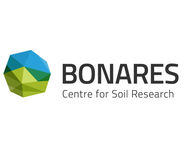Pressures on soil functions from soil management in Germany. A foresight review (2017.0)
Techen A., Helming K.
Agronomy for Sustainable Development, 37 (6),
Abstract
Global trends in demand for biomass-based food, feed, energy, and fiber call for a sustainable intensification of agricultural production. From the perspective of sustaining soil functions, this implies the integration of soil productivity with the other soil functions and services, namely carbon sequestration, water purification and retention, and nutrient and matter cycling as well as biodiversity. Soil management is the key to this integration. The proper anticipation of future opportunities and challenges for sustainable soil management requires an analysis of drivers and trends affecting soil management. Here, we review drivers and trends of soil management and their relevance for soil functions taking Germany as an example of industrialized agricultural systems with low yield gaps. We analyzed socio-economic, biophysical and technological drivers and identified two types of future management changes: (1) Quantitative changes, i.e., more or less of the same input factors, such as fertilizers, as part of a moderate intensification. (2) Qualitative changes: There, we found the strongest signals for the following practices: higher precision and lightweight machines triggered by information and communication technology (ICT) and robotics; diversification of crop rotations, including the integration of lignocellulosic crops; inoculation with biota; and new crop varieties. Positive practices may be reinforced by a behavioral trend towards sustainable soil management, driven by increasing awareness, knowledge, and consumer demand. They offer opportunities for relieving mechanical pressures from weight and contact stress, chemical pressures from pesticides and fertilizers and promoting soil biodiversity without compromising the soil’s production function. We also found threats, such as increased removal of organic residues and potentially harmful organisms. This foresight study is the first to delineate opportunities and challenges for sustainable soil management and intensification. It informs researchers who intend to improve the knowledge base for reinforcement of positive and mitigation of negative trends of soil management.
